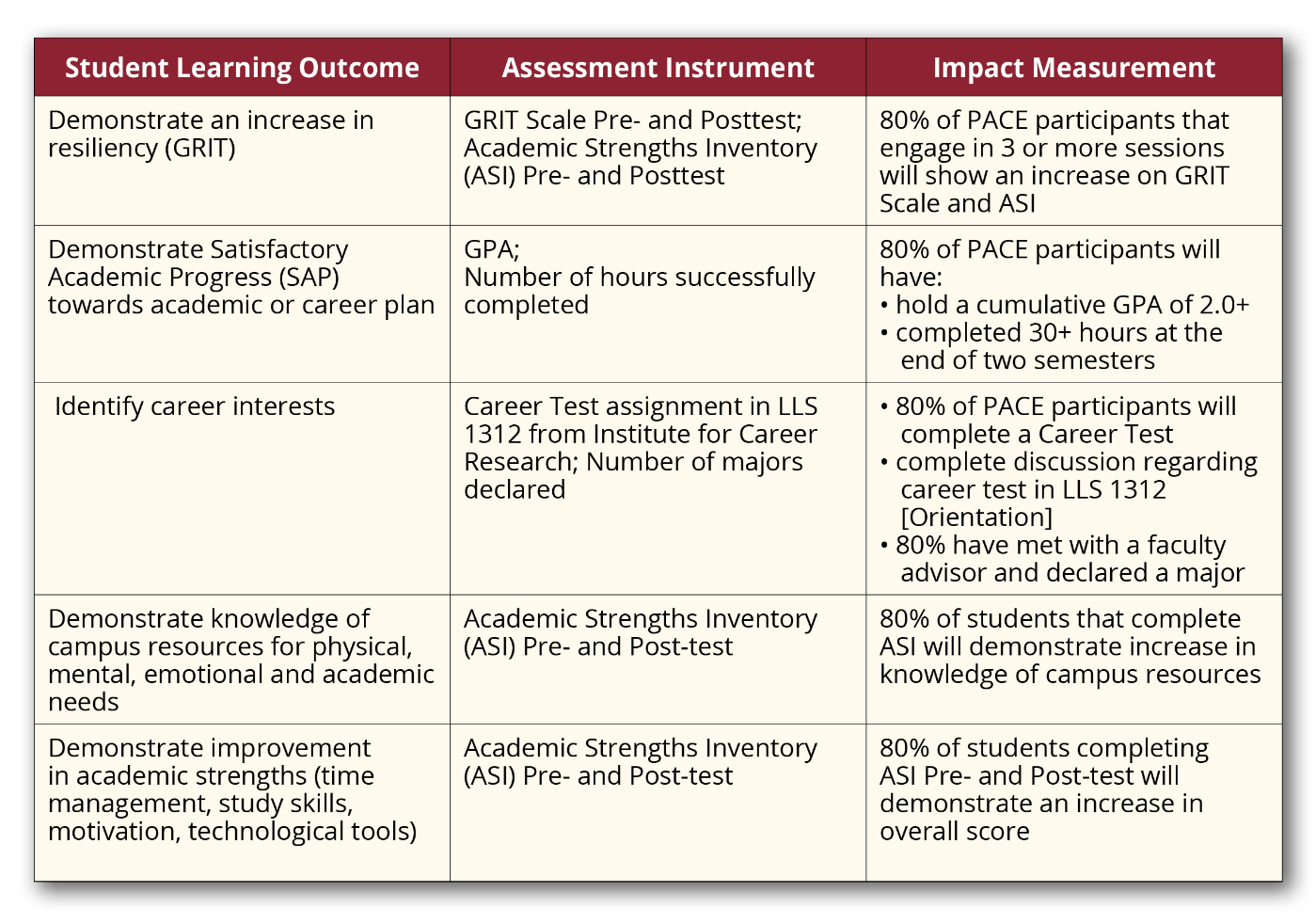
The Quality Enhancement Plan (QEP) that Jones County Junior College (JCJC) selected is entitled Personalized Academic Coaching Experience (PACE). This plan is designed to improve student learning by connecting the student to resources to enhance the academic skills and self-efficacy. PACE will help students overcome impediments to educational success.
First-time freshmen entering into academic programs will be assigned to an academic coach from the date of their enrollment. The National Association for Academic Advisement (NACADA) defines academic coaching as " an interactive process that focuses on the personal relationship created between the student and the coach. The coach challenges the student to think about his or her personal and/or professional goals in order to relate them to his or her academic/educational goals."
This PACE academic coach will focus on three main goals for the student:
1) Connecting to campus resources and support services
2) Engaging in learning processes
3) Developing skills that drive success
The graph below displays the Student Learning Objectives, Assessment, and Impact Measures that support the PACE goals

How will PACE affect JCJC?
PACE will help the students to complete their education on-time and improve the success rates. Therefore, the expected institutional impact measures for the PACE program are:
1. Increased retention rate
2. Increased Semester-to-semester persistence rate
3. Decrease in pre and within semester withdrawal rate
4. Increase in success rate
5. Increase in graduation rate
6. Increase in transfer rate
How was PACE selected?
The selection and development of PACE as the JCJC’s QEP resulted from input from campus-wide constituents. The process began with a review of the mission, objectives, and strategic goals of the college. The QEP Research Committee reviewed institutional data and conducted focus groups and extensive literature reviews. A QEP Advisory Committee analyzed the options to determine the greatest impact on student learning outcomes.
The research committee recommended student advisement intervention to the Executive Cabinet. The QEP Implementation Task Force formed in Fall 2016 and developed plans for a Pilot Phase of the QEP in Spring 2017. While this pilot phase focused on at-risk students, the QEP Implementation Task Force reviewed best practices to expand the program to all incoming first-time freshmen for Fall 2017. PACE is intended to help students avoid freshman pitfalls that could hinder their academic progress.